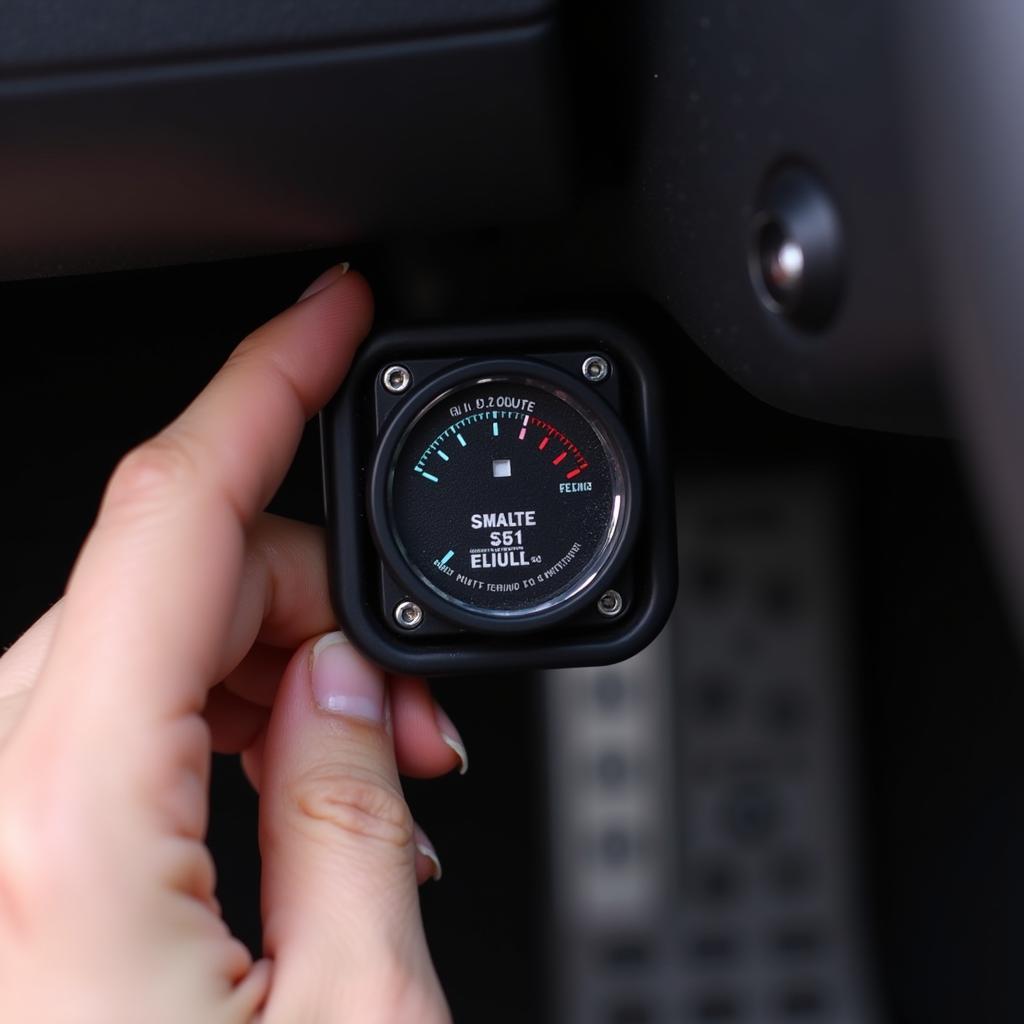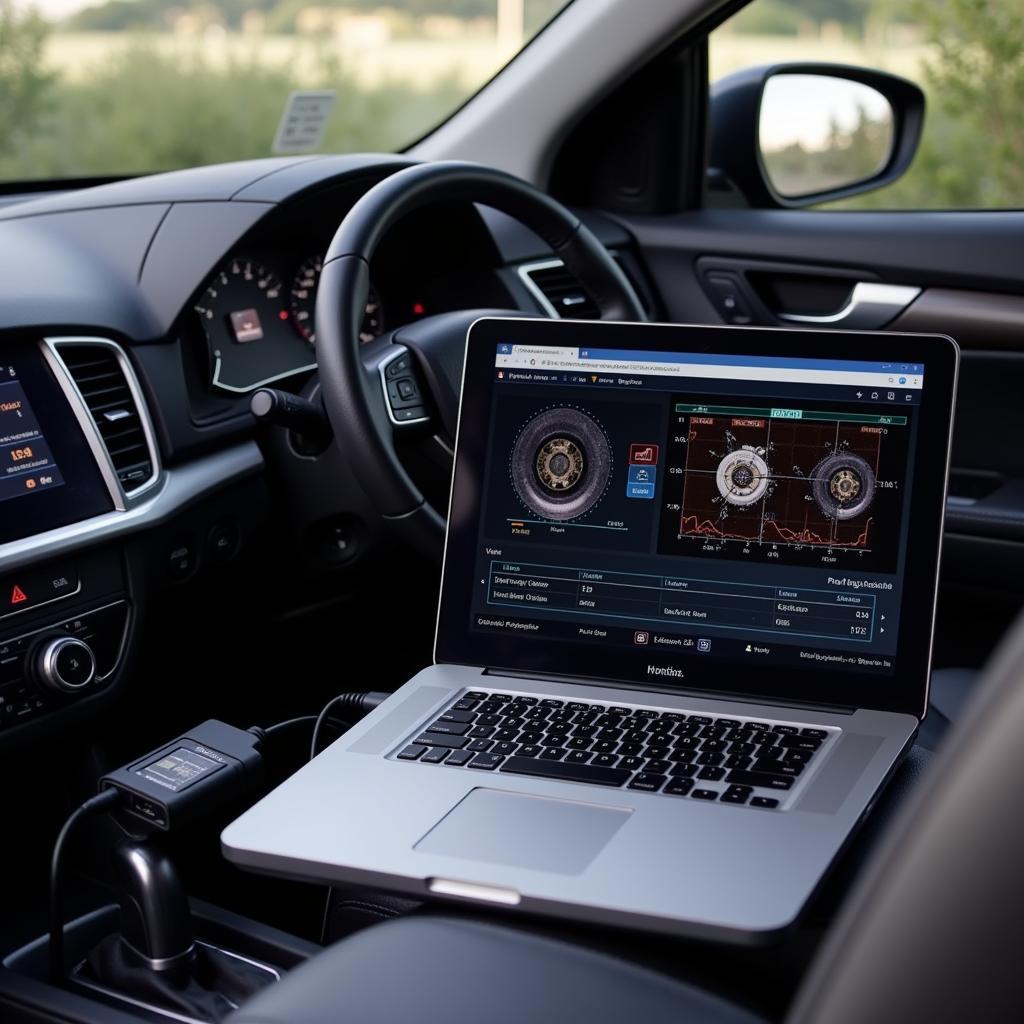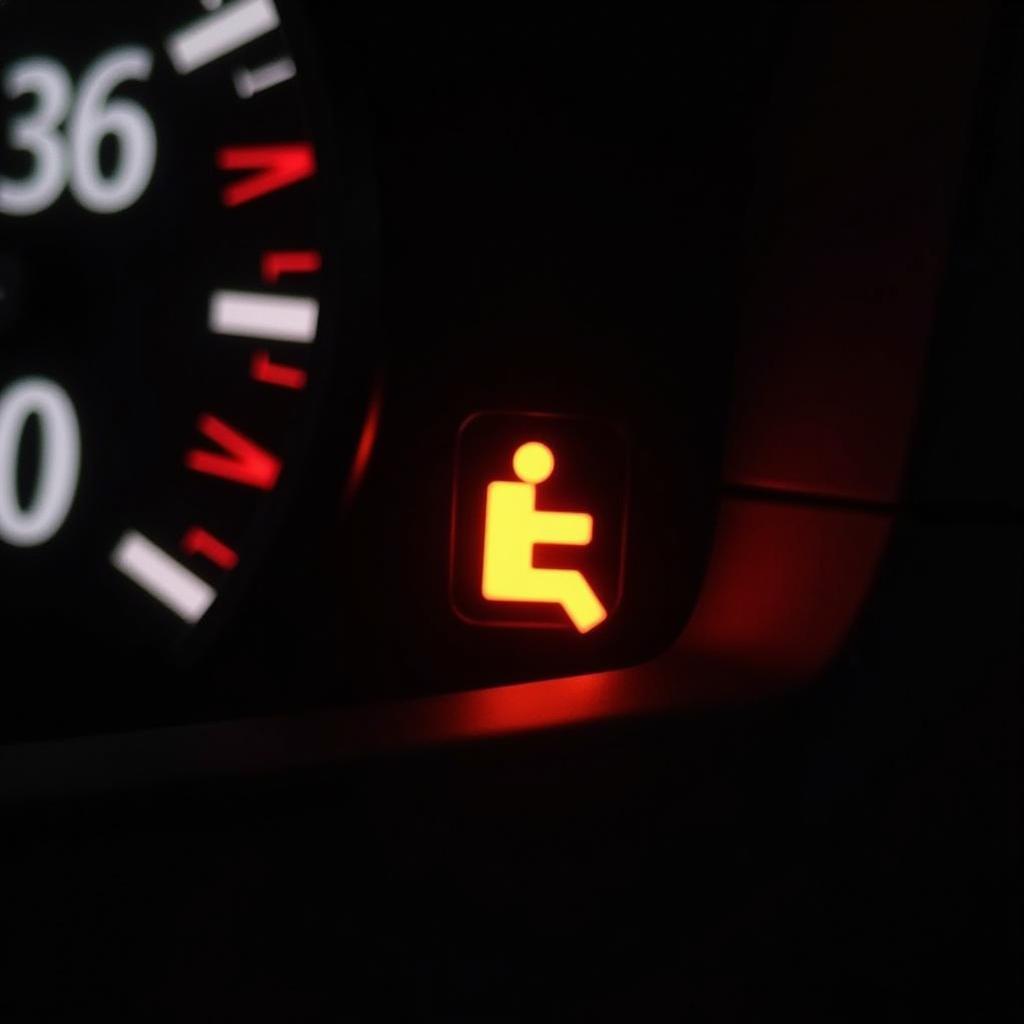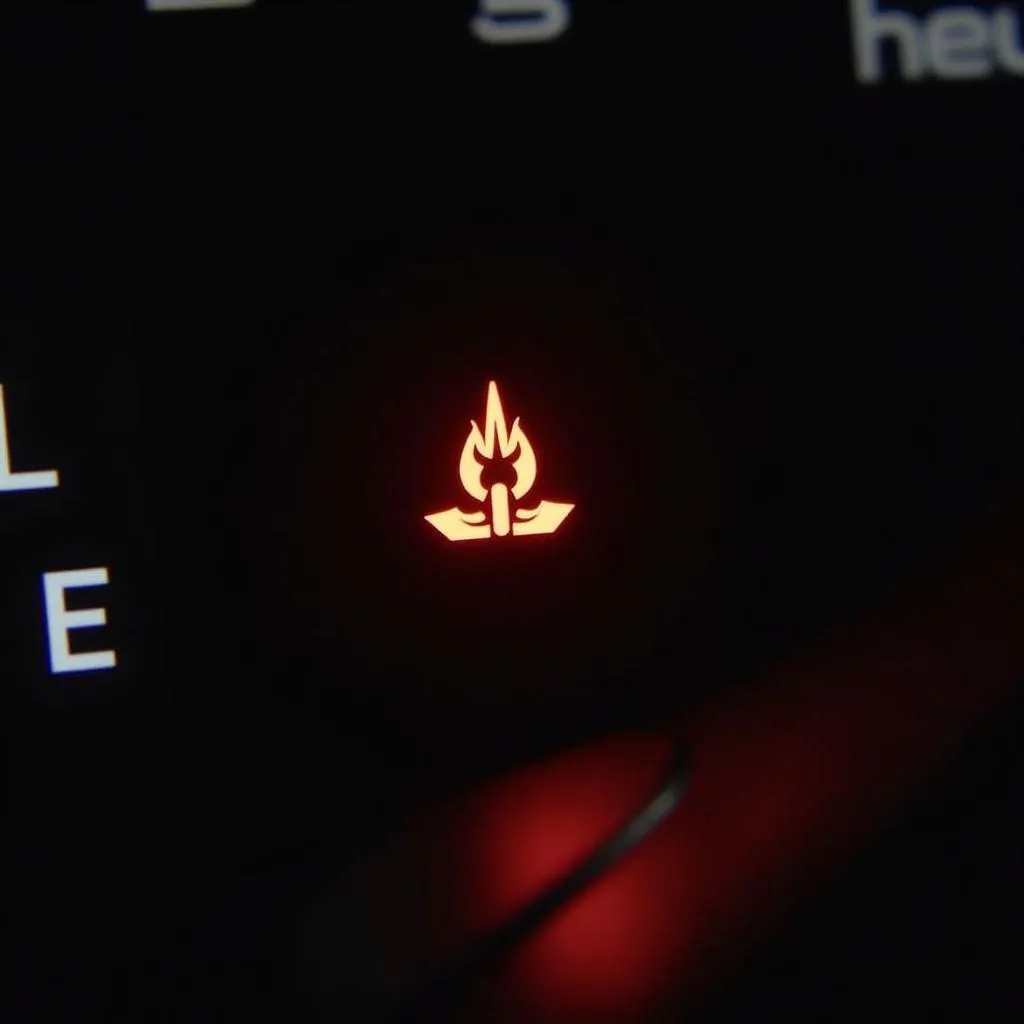The brake system warning light on your Honda Accord’s dashboard is a crucial safety indicator. When illuminated, it signals a potential issue within the braking system that requires immediate attention. Ignoring this warning could lead to reduced braking performance and increase the risk of an accident.
This comprehensive guide delves into the common causes of a Honda Accord brake system warning, possible solutions, and essential preventative measures.
Understanding Your Honda Accord’s Brake System Warning Light
The brake system warning light, often depicted as a circled exclamation mark (!) or the word “BRAKE,” can illuminate for various reasons:
- Low Brake Fluid: This is the most common reason for the warning light. Brake fluid is essential for transmitting force from the brake pedal to the wheels, ensuring effective braking.
- Engaged Parking Brake: Accidentally leaving the parking brake even slightly engaged can trigger the warning light.
- Faulty Brake Light Switch: This switch activates your brake lights when you press the brake pedal. A malfunctioning switch can disrupt the brake light circuit and illuminate the warning light.
- Worn Brake Pads: Brake pads have wear indicators that create a squealing noise when they become too thin. If ignored, this can lead to the brake system warning light appearing.
- ABS Issue: While less common, a problem within the Anti-lock Braking System (ABS) can trigger the warning light. This usually illuminates alongside the ABS warning light.
Troubleshooting a Honda Accord Brake System Warning
1. Check Your Parking Brake: Ensure the parking brake is fully disengaged. Sometimes, a slight bump can partially engage it.
2. Inspect Brake Fluid Level: Park your car on a level surface and locate the brake fluid reservoir under the hood. Check the fluid level; it should be between the minimum and maximum marks.
3. Examine Brake Pads: If you hear a squealing noise when applying the brakes, it’s time to have your brake pads inspected by a mechanic.
4. Consult a Professional: If the warning light persists despite checking these common issues, it’s crucial to consult a qualified mechanic specializing in Honda vehicles.
 Checking the Brake Fluid Reservoir in a Honda Accord
Checking the Brake Fluid Reservoir in a Honda Accord
Remote Diagnostics and Software Solutions for Honda Accord Brake Issues
In today’s technologically advanced world, remote diagnostics and software solutions play a crucial role in identifying and resolving car issues, including those related to the brake system. As a specialist in automotive electrical engineering, I leverage these advancements to offer efficient and convenient solutions to Honda Accord owners experiencing brake system warnings.
Remote Diagnostics: By connecting to your Honda Accord’s onboard computer remotely, I can access real-time data from various sensors and systems, including the ABS module, brake fluid level sensor, and brake light switch. This allows me to pinpoint the root cause of the brake system warning with greater accuracy.
Software Updates and Programming: Oftentimes, software glitches or outdated software versions within the ABS module or other related control units can trigger false brake system warnings. Through remote programming, I can install the latest software updates, ensuring optimal performance and eliminating any software-related issues.
 Remote Diagnostics for Honda Accord Brake System
Remote Diagnostics for Honda Accord Brake System
Benefits of Remote Diagnostics and Software Solutions:
- Convenience: No need to visit a mechanic physically; diagnostics and solutions can be implemented remotely.
- Faster Turnaround Times: Remote access allows for quicker diagnosis and resolution compared to traditional methods.
- Cost-Effective: Eliminates the need for towing and reduces labor costs associated with physical inspections.
- Accurate Diagnosis: Provides detailed insights into the brake system’s health, facilitating precise identification of the problem.
Preventing Future Honda Accord Brake System Warnings
- Regular Maintenance: Adhere to your Honda Accord’s recommended maintenance schedule for brake fluid flushes, brake pad replacements, and inspections.
- Quality Parts: Always use high-quality brake pads, rotors, and fluids designed for your Honda Accord.
- Avoid Riding the Brakes: Prolonged pressure on the brake pedal can overheat the system, leading to premature wear and tear.
- Address Warning Lights Promptly: Never ignore any warning light on your dashboard, especially those related to your brakes.
Conclusion
Addressing a Honda Accord brake system warning promptly is vital for ensuring your safety and the longevity of your vehicle. While some causes, like low brake fluid, have simple solutions, others require professional expertise. Embracing remote diagnostics and software solutions offers a convenient, efficient, and cost-effective way to diagnose and resolve these issues. Regular maintenance and safe driving practices are key to preventing future brake system warnings and enjoying many miles of safe driving in your Honda Accord.
FAQs
1. Can I drive my Honda Accord with the brake system warning light on?
It’s not advisable to drive with any warning light on, especially the brake system warning. It indicates a potential problem that could affect your ability to brake safely.
2. How often should I change my Honda Accord’s brake fluid?
Honda recommends changing your brake fluid every 30,000 miles or every 3 years, whichever comes first.
3. How long can I drive on my Honda Accord with worn brake pads?
Driving with worn brake pads is dangerous and can damage your rotors. It’s crucial to replace them as soon as you notice signs of wear, such as squealing noises.
4. Are remote diagnostics safe for my Honda Accord?
Yes, remote diagnostics are safe and do not harm your vehicle’s electronics. It uses secure connections to access and analyze data from your car’s computer.
5. Does my 1999 Honda Accord have remote diagnostic capabilities?
While remote diagnostics are more common in newer Honda Accords, some 1999 models might have limited diagnostic capabilities through the OBD-II port.
6. My Honda Accord won’t start, and the brake system warning light is on. What could be the problem?
While it’s unusual, a brake system issue, such as a faulty brake light switch, could prevent your Honda Accord from starting. It’s best to consult a mechanic for diagnosis.
7. The brake warning light and TCS light are illuminated on my Honda Accord. What does this mean?
If both the brake warning light and TCS (Traction Control System) light are on, it could indicate a problem with your Accord’s ABS system.
This comprehensive guide provides valuable information about Honda Accord brake system warnings, potential causes, and solutions. Remember, if you encounter this warning, address it promptly to ensure your safety on the road.


